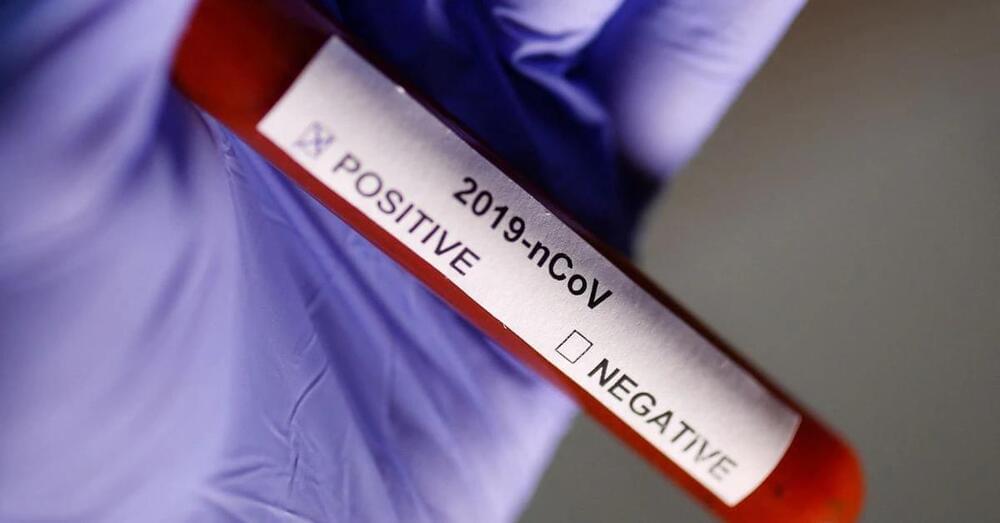At nearly one mile wide, the Earth Trojan is the largest yet—but it’s not here to stay.


Watch this video ad-free on Nebula: https://nebula.app/videos/polymatter-the-myth-of-chinese-efficiency.
Sources: https://pastebin.com/F2B6axnJ
Twitter: https://twitter.com/polymatters.
Reddit: https://reddit.com/r/PolyMatter.
Music by Graham Haerther (http://www.Haerther.net)
Audio editing by Eric Schneider.
Motion graphics by Vincent de Langen.
Thumbnail by Simon Buckmaster.
Writing & Direction by Evan.
This includes a paid sponsorship which had no part in the writing, editing, or production of the rest of the video.
Music by Epidemic Sound: http://epidemicsound.com.
A DIY heater developed by Portland-based collective HeaterBloc is helping unsheltered people across the U.S. stay warm this winter — and the potentially life-saving units cost just $7.
The challenge: On any given night in America, an estimated 226,000 people are “unsheltered” or “unhoused,” meaning they’re sleeping in cars, tents, abandoned buildings, or other places outside of homes or shelters.
This situation is particularly dangerous during the winter months, when temperatures can dip below freezing.

Dubbed the “Quark,” the motor weighs just 63 pounds.
Koenigsegg is also marketing an EV drive unit made up of two Quark motors, plus its small-but-powerful inverter, and small low-ratio planetary gearsets at each output shaft. The unit is called the “Terrier,” and serves up 670 hp and 811 lb-ft in a package that weighs just 187 pounds, and which offers torque vectoring across an axle. A Terrier can be bolted directly to a car’s monocoque as well.
More information on the Terrier unit is forthcoming, and presumably, it will be featured on future Koenigsegg products. As ever, the numbers are deeply impressive and entirely unsurprising from the innovative Swedish firm.

Might there be a better way? Perhaps.
A new paper published on the preprint server arXiv describes how a type of algorithm called a “hypernetwork” could make the training process much more efficient. The hypernetwork in the study learned the internal connections (or parameters) of a million example algorithms so it could pre-configure the parameters of new, untrained algorithms.
The AI, called GHN-2, can predict and set the parameters of an untrained neural network in a fraction of a second. And in most cases, the algorithms using GHN-2’s parameters performed as well as algorithms that had cycled through thousands of rounds of training.

Older Apple computers can often be something of a collector’s item, with the oldest fetching an enormously high price in auctions. The ones from the late ’80s and early ’90s don’t sell for quite as much yet, but it’s possible that museums and collectors of the future will one day be clamoring for those as well. For that reason, it’s generally frowned upon to hack or modify original hardware. Luckily, this replica of an Apple Macintosh didn’t harm any original hardware yet still manages to run software on bare metal.
The computer is built around a single-board computer, but this SBC isn’t like the modern ARM machines that have become so ubiquitous. It’s a 133MHz AMD 486 which means that it can run FreeDOS and all of the classic DOS PC games of that era without emulation. In order to run Apple’s legacy operating system, however, it does require the use of the vMac emulator, but the 486 is quite capable of handling the extra layer of abstraction. The computer also sports a real SoundBlaster ISA sound card, uses a microSD card for its hard drive, and uses an 800×600 LCD screen.
As a replica, this computer is remarkably faithful to the original and even though it doesn’t ship with a Motorola 68,000 it’s still fun to find retro PC gamers that are able to run their games on original hardware rather than emulation. It reminds us of another retro 486 that is capable of running old games on new hardware without an emulator as well.


Info from Japan.
TOKYO, Jan 31 (Reuters) — Japanese trading and pharmaceuticals company Kowa Co Ltd (7807.T) on Monday said that anti-parasite drug ivermectin showed an “antiviral effect” against Omicron and other coronavirus variants in joint non-clinical research.
The company, which has been working with Tokyo’s Kitasato University on testing the drug as a potential treatment for COVID-19, did not provide further details. The original Reuters story misstated that ivermectin was “effective” against Omicron in Phase III clinical trials, which are conducted in humans.
Clinical trials are ongoing, but promotion of ivermectin as a COVID-19 treatment has generated controversy.

For the first time, SpaceX has converted a flight-proven Falcon Heavy side core into a Falcon 9 booster and successfully launched the reborn rocket, carrying an Italian Earth observation satellite to orbit with one of the most visually spectacular Falcon launches in recent memory.
After a tortured campaign of four scrubbed or aborted launch attempts between January 27th and 30th, Falcon 9 finally lifted off from SpaceX’s Cape Canaveral Space Force Station (CCSFS) LC-40 pad at 6:11 pm EST (23:11 UTC) on Monday, January 31st. The converted Falcon Heavy booster performed perfectly on its first solo mission, successfully carrying a Falcon upper stage and Italy’s CSG-2 synthetic aperture radar (SAR) Earth observation satellite to an altitude of 70 km (~45 mi) and a velocity of ~1.7 km/s (Mach 5) – effectively the edge of space.
Thanks to near-perfect weather and the timing of the launch about 15 minutes after sunset, Falcon Heavy side core B1052’s first mission as a Falcon 9 booster wound up producing some of the best views of a SpaceX launch in the company’s history. As the rocket ascended, the sky continued to darken for local ground observers. It wasn’t long before Falcon 9’s shiny, white airframe ascended into direct sunlight, which created some extraordinary contrast against the darkening sky for tracking cameras near the launch site.
